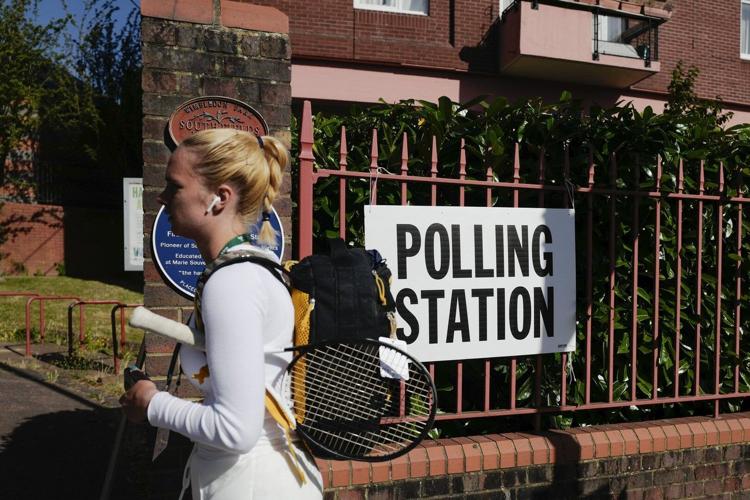LONDON (AP) — There has been a mixed reaction in Britain to the government’s announcement that it will lower the voting age from 18 to 16 before the next national election.
The Labour Party administration says it’s part of a package of changes to strengthen British democracy and help restore trust in politics. The opposition says it’s a power-grab by the left.
Experts say it’s complicated, with mixed evidence about how lowering the voting age affects democracy and election outcomes.
The biggest change since the 1960s
Britain’s voting age last fell in 1969, when the U.K. became one of the first major democracies to lower it from 21 to 18. Many other countries, including the United States, followed suit within a few years.
Now the government says it will lower the threshold to 16 by the time the next general election is held, likely in 2029. That will bring the whole country into line with Scotland and Wales, which have semiautonomous governments and already let 16- and 17-year-olds vote in local and regional elections.
A handful of other countries currently have a voting age of 16, including Austria, Brazil and Ecuador. A few European Union countries, including Belgium, Germany and Malta, allow 16-year-olds to vote in elections to the European Parliament.
The case for votes at 16
Supporters argue that 16-year-olds in Britain can work and pay taxes, so should be allowed to vote.
“If you pay in, you should have the opportunity to say what you want your money spent on,” Prime Minister Keir Starmer said.
Pro-democracy organizations welcomed the lower age, and a move toward automatic voter registration, saying it would help increase voting rates. Turnout in the 2024 election was 59.7%, the lowest level in more than two decades.
The age change is part of a package of electoral reforms that includes tightening campaign financing rules and broadening the range of documents that can be used as identification at polling stations.
Supporters argue it will increase democratic participation by getting teenagers into the habit of voting at a time when most are still in school.
“Younger people who are in full-time education and often still live at home can make for better, more engaged first-time voters compared with 18- to 20-year-olds, who often experience their first election in a highly transitory phase of their lives,” Christine Huebner, a social scientist at the University of Sheffield who has studied youth voting, wrote in The Guardian.
Critics call it a cynical move
Opponents argue that 16- and 17-year-olds should not be given the vote because in most ways they are not considered adults.
“Why does this government think a 16-year-old can vote but not be allowed to buy a lottery ticket, an alcoholic drink, marry, or go to war, or even stand in the elections they’re voting in?” Conservative lawmaker Paul Holmes asked Thursday in the House of Commons.
Mark Goodwin, a senior lecturer in politics at Coventry University, agreed the move could seem paradoxical, because “socially, if anything, we’re moving in the opposite direction.”
“Increasingly the age of majority, the age at which you become a fully capable and responsible adult, is moving more towards 18,” he said.
The government’s political opponents on the right argue that Labour hopes to benefit from 1.5 million new potential young voters who generally lean to the left.
Nigel Farage, leader of the hard-right party Reform UK, said Labour was trying to “rig the system.” Conservative former foreign secretary James Cleverly said the government had cynically announced the change because it is “tanking in the polls.”
Labour can’t take youth votes for granted
Experts say enfranchising 16- and 17-year-olds is unlikely to dramatically change election results, because they are a relatively small group with diverse views. And it’s far from clear that Labour will reap most of the benefits of a bigger youth vote.
U.K. politics, long dominated by Labour and the Conservatives, is becoming increasingly fragmented. Polling suggests younger voters lean left, but they are split among several parties including Labour, the Greens and the Liberal Democrats. Farage’s embrace of TikTok has built his brand with youth, and Reform has some support among young men.
Goodwin said that in many parts of the world, “young people are abandoning the center-left in droves.
“And in many cases, they’re lending their support to parties of the populist right, or challenger parties, outsider parties, independents, more alternative parties,” he said.
“If it is a cynical ploy to get more Labour votes, there’s certainly an element of risk about where those votes would ultimately be cast.”

























